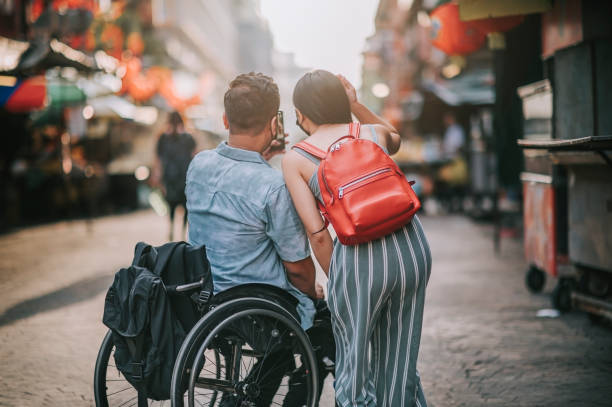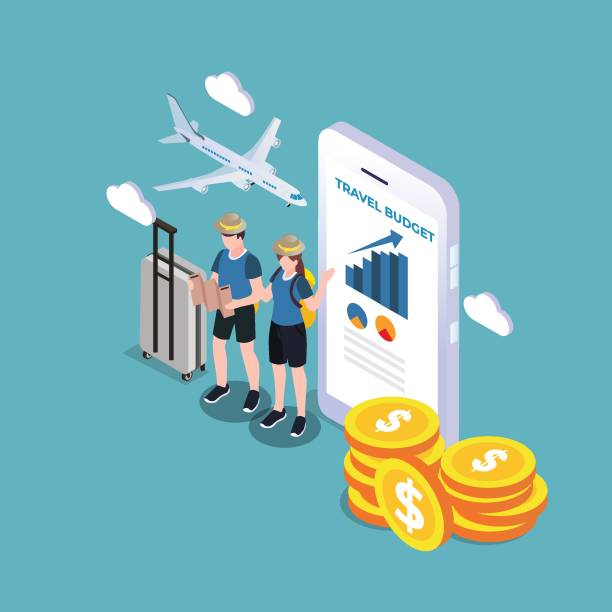Travel is an enriching experience that allows us to explore new places, cultures, and perspectives. However, for travelers with disabilities, the journey can sometimes come with additional challenges. Whether it’s navigating transportation systems, finding accessible accommodations, or ensuring that attractions are inclusive, the key to a successful trip is preparation and knowing where to find resources that cater to your needs.
In this guide, we’ll share practical tips and resources for travelers with disabilities, covering accessible accommodations, attractions, transportation, and how to ensure a smooth and enjoyable travel experience.
1. Accessible Accommodations: How to Find the Right Place to Stay
One of the most important aspects of traveling with a disability is finding accommodations that meet your accessibility needs. Luckily, many hotels, resorts, and rental properties now offer accessible rooms and facilities. Here’s how to make sure your accommodations are suitable:
Tips for Booking Accessible Accommodations:
- Research in advance: Start by researching hotels or other accommodations that specifically cater to travelers with disabilities. Websites like Accessible Travel Online, Disabled Holidays, and Airbnb have filters to help you find accessible properties.
- Contact the property directly: Even if a hotel lists itself as accessible, it’s a good idea to call ahead to confirm the specific features. Ask about door widths, bathroom layouts, bed heights, and whether they have roll-in showers or other features you may need.
- Look for ADA-compliant rooms: In the United States, the Americans with Disabilities Act (ADA) mandates that hotels provide accessible rooms. When booking, check that the room meets ADA standards, such as wider doors, grab bars in the bathroom, and an accessible route to the hotel’s amenities.
- Consider location and amenities: Choose accommodations close to the attractions or activities you plan to visit. Some hotels also provide additional services, like accessible transport or concierge services, which can be incredibly helpful.
Useful Resources:
- Accessible Travel Online (accessibletravelonline.com)
- Disabled Holidays (disabledholidays.info)
- Airbnb (Use filters for accessible accommodations)
2. Accessible Attractions and Activities: Enjoying the Best Experiences
Many tourist destinations and attractions are now making efforts to be more inclusive. However, accessibility can vary greatly depending on the location, so it’s essential to do some research before your trip.
Tips for Visiting Accessible Attractions:
- Look for accessible attractions: Major museums, national parks, zoos, and cultural sites are increasingly adopting accessible features. Many offer ramps, elevators, and accessible restrooms. Some even provide sensory tours or guides tailored to specific disabilities.
- Check for audio or visual aids: Many museums and galleries offer assistive devices like hearing loops, sign language interpreters, or visual guides for those with sensory impairments.
- Pre-book when necessary: Some attractions, like special exhibits or events, require advance reservations, especially if you need accessible services like a wheelchair or guide. Call ahead to ensure that your needs are met.
- Consider guided tours: A guided tour can often make your experience more comfortable and enjoyable. Many cities offer tours specifically designed for people with disabilities, such as wheelchair-accessible walking tours or private tours for those with sensory impairments.
Accessible Attractions to Explore:
- Museums and cultural sites: The Louvre in Paris, the British Museum in London, and the Smithsonian in Washington, D.C., are among the many museums with accessible features for all types of disabilities.
- National parks: In the U.S., the National Park Service provides accessibility information on all park websites, and many parks have wheelchair-friendly trails and accessible viewpoints.
- Zoos and aquariums: Many zoos and aquariums offer accessible paths, wheelchairs, and sensory-friendly exhibits, ensuring that visitors of all abilities can enjoy the experience.
3. Accessible Transportation: Getting Around with Ease
Transportation can be one of the trickiest aspects of travel for people with disabilities, but with the right knowledge, getting from one place to another can be relatively smooth. Whether you’re traveling by plane, train, or car, planning ahead will make all the difference.
Tips for Accessible Transportation:
- Flights:
- Notify airlines of your needs: When booking a flight, make sure to inform the airline of any special assistance you may require, such as wheelchair service, priority boarding, or help with transfers between gates.
- Check for accessible airports: Some airports have accessible features like ramps, elevators, and dedicated help desks for passengers with disabilities. Research the airport ahead of time to know what services are available.
- Plan for transfers: Airports can be large and overwhelming, so arrange for help getting to and from your gate, especially if you have mobility challenges. Airlines often offer airport assistance upon request.
- Trains and Buses:
- Look for accessible stations: Many train stations are now equipped with elevators, ramps, and accessible bathrooms. Websites like Rail Europe or National Rail Enquiries offer accessibility information for specific routes.
- Wheelchair-accessible buses: Many cities provide buses equipped with wheelchair lifts or low floors to allow easier access for passengers with disabilities. You can check local transport websites or apps for accessibility features.
- Car Rentals:
- Book in advance: Some car rental agencies offer accessible vehicles, such as hand-controlled cars or those with ramps. Be sure to book early and confirm the car’s features before picking it up.
- Private transport options: In some cities, companies offer accessible taxi services or private tours tailored for travelers with disabilities. Look for local services that cater to your specific needs.
4. General Travel Tips for a Smooth Journey
In addition to planning for accessible accommodations, attractions, and transportation, there are several general tips that can help ensure a smoother, more inclusive travel experience.
General Tips for Traveling with Disabilities:
- Use assistive technology: If you use a mobility device, hearing aids, or other assistive technology, ensure that you have everything you need and that it’s fully charged. Many airports and transport hubs also offer free Wi-Fi, which can be useful for using apps or devices.
- Pack extra supplies: When traveling, pack extra medications, battery chargers, and personal care items that you may need. It’s always better to have more than you need, as it can be difficult to find specific products in unfamiliar places.
- Know your rights: Familiarize yourself with the rights of disabled travelers in the country you’re visiting. For example, in the U.S., the ADA mandates accessibility in public spaces, while in Europe, the European Union’s Regulation (EC) No 1107/2006 ensures air travel accessibility.
- Download helpful apps: Apps like Wheelmap (for finding accessible places), Aira (for visually impaired travelers), and Wheelchair Travel (for accessible destinations) are great resources to help you navigate your trip.
- Travel insurance: Consider purchasing travel insurance that covers disability-related needs. Make sure your policy includes coverage for mobility devices, medical emergencies, or any other specific needs you may have.
5. Online Resources and Communities for Accessible Travel
A wealth of online resources can help you plan your accessible adventures and connect with other travelers who have similar needs.
Helpful Websites and Communities:
- Mobility International USA (MIUSA) (miusa.org): MIUSA provides a wealth of resources for travelers with disabilities, including travel guides and tips for international destinations.
- Wheelchair Travel (wheelchairtravel.org): This website offers comprehensive information about accessible destinations, transportation, and services for wheelchair users.
- Accessible Travel Forum (accessibletravelforum.com): A supportive online community where travelers with disabilities share tips, advice, and personal experiences.
Traveling with disabilities may require extra preparation, but with the right planning and resources, it can be just as rewarding as any other journey. By researching accessible accommodations, attractions, and transportation options, you can ensure a seamless, inclusive travel experience. The world is full of incredible places waiting to be explored—don’t let disability hold you back. With the right tools, information, and mindset, you can have an unforgettable adventure.
Safe travels and happy exploring! 🌍♿✨





